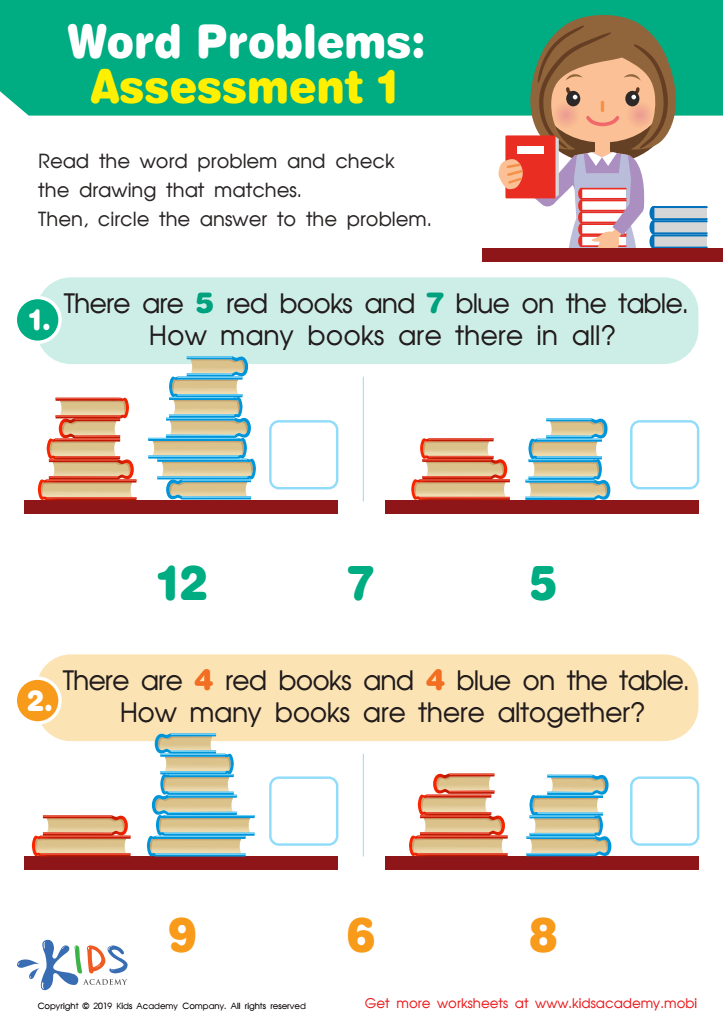Logical Reasoning Word Problems Worksheets for Ages 3-8
5 filtered results
-
From - To
Enhance your child's critical thinking with our "Logical Reasoning Word Problems Worksheets for Ages 3-8." These engaging activities help young learners develop essential analytical skills by solving a variety of age-appropriate problems. Through fun and colorful worksheets, children will practice identifying patterns, making connections, and using logic to find solutions. Each worksheet is designed to challenge and stimulate young minds, laying a solid foundation for future math success. Perfect for teachers and parents alike, our resources support the development of key learning skills in a playful and educational manner. Visit now for fun learning adventures!


Enrichment -2 Step Word Problems Worksheet


Word Problems: Assessment 1 Worksheet


Solve the Problem: Trick–or–treating Worksheet


Word Problems: Assessment 2 Worksheet


Addition and Subtraction: Word Problems Worksheet
Parents and teachers should care about logical reasoning word problems for children aged 3 to 8 because these problems play a critical role in early cognitive development. Addressing logical reasoning skills at a young age fosters critical thinking, problem-solving, and analytical abilities. These skills form the foundation for more complex mathematical concepts and everyday decision-making.
Introducing logical reasoning through word problems in this age group helps children understand how to sequence events, make connections between different pieces of information, and see patterns—all of which are crucial not just in mathematics but across all areas of learning. Moreover, such activities enhance reading comprehension, as children must understand and interpret the storyline before solving the problem. This joint effort to read and reason supports both literacy and numeracy development.
Engaging with these word problems also boosts confidence and promotes a positive attitude towards learning. Successfully solving a problem can be immensely satisfying for young minds, thereby increasing their motivation and eagerness to tackle more challenging tasks. Lastly, this early exposure can improve social skills as children often work in groups, discussing and sharing different approaches to solving problems.
Investing in logical reasoning word problems for young children means nurturing versatile thinkers who are better equipped for academic success and real-world challenges.
 Assign to My Students
Assign to My Students



















